These are extraordinary times that require extraordinary measures to help our country navigate the financial pressures resulting from the economic climate. The Federal Government announced today measures to help Canadian individuals and business owners cope with the fallout from COVID-19.
It is important to understand that most of the measures announced are payment deferrals and not forgiveness. This helps Canadians avoid having to liquidate assets in a down market to make payments that would otherwise be due. Our team here at Wellington-Altus can help you prioritize your immediate financial decision-making to take advantage of the newly announced measures.
There are some unanswered questions that will resolve once legislation is tabled and passed so stay tuned as the details emerge. The Finance Minister was slated to table the budget on March 30th, but that has been postponed indefinitely.
These are some of the measures announced that may help:
If You Are Unable to Work and Your Income is Impacted
-
Employment Insurance (EI): the one week waiting period is waived for anyone in imposed quarantine claiming sickness benefits.
-
New! The Emergency Care Benefit: $450 a week paid every two weeks for 15 weeks for those not eligible for EI that are ill, must self-isolate or take care of family members with COVID-19 or take care of children due to school closures. Payments are scheduled to start in early April and will be administered online by the Canada Revenue Agency (CRA).
-
New! The Emergency Support Benefit: 14 weeks of financial support for those not eligible for EI at a to be determined amount that will be comparable to EI benefits.
Boosting Government Benefits for Families and Low-Income Individuals to Help Meet Financial Needs
-
Enhanced GST Credit: A one-time payment in early May, doubling the maximum amounts payable resulting in an average increase of approximately $400 for a single taxpayer and approximately $600 for couples.
-
Canada Child Benefit: For those receiving benefits for the 2019-2020 benefit year, a top up on your May payment of up to $300 per child, depending on current eligibility amounts.
If You Are a Business Owner
-
Work-Sharing Program: The department of finance has enhanced this program. Click here for details on this program to help you support a reduction in work hours for your employees.
-
Greater Access to Lending: The government has provided access to an additional $10 Billion of credit.
-
Payroll Subsidy: Small business owners (those eligible for the small business deduction) are eligible for a wage subsidy equal to 10% of payroll for the next 3 months up to a maximum of $25,000 per employer or $1,375 per employee available immediately via reduced payroll remittances.
Given the downturn in markets, tax planning opportunities may exist to freeze or re-freeze value in your holding company at lower rates. Now may also be an appropriate time to accelerate or re-visit any corporate wind-up strategies. These strategies should be considered in conjunction with an overall financial plan and in consultation with your tax advisor.
For Seniors
-
RRIF Minimums: A temporary reduction for the 2020 tax year on the withdrawal rate for RRIFs by 25% allowing more money to stay in the plan if you don’t otherwise need it. OAS and GIS payments continue as usual.
For Young Canadians
-
Canada Student Loans: A 6-month interest free moratorium on Canada Student Loans, which translates into a $160 per month permanent benefit.
Income Tax Deferrals
-
Deadline to File: The CRA has extended the deadline to file personal tax returns (T1s) from April 30th to June 1st. Calendar year trusts have until May 1st. This may impact the delivery of T3 slips for some of your investments and impact your ability to file before May 1st.
-
Deferred Income Tax Payments: Corporate and personal income tax payments can be deferred until August 31st with no interest or penalties accruing. This includes any payment of any income tax amount owing on or after March 18th, including instalment payments. Sadly, any outstanding March 15th instalment payment would not fall under this relief and should be paid as soon as possible to avoid interest and penalties.
If you anticipate a refund this year, we suggest filing your returns as soon as possible and discussing the best use of that money given your current situation.
Details on the Canadian government’s plan can be found here.
If You Are Concerned About Making Your Mortgage or Debt Payments
-
Deferred Payments: The major Canadian banks and the CMHC have announced 6-month payment deferrals and other options such as “skip a payment” or “skip the minimum”.
US Tax Provisions
The IRS has announced in Notice 2020-17 that the April 15th income tax payment, including the quarterly estimate is extended until July 15th without interest and penalties. At this point, payments required to be made on June 15th for certain non-resident aliens and second quarter estimates are not deferred. An extension of time to file the return past April 15th is still required. The deferral does not apply to state tax payments due on April 15th and therefore state law should be closely monitored to avoid unnecessary penalties. Additional financial stimulus measures have been proposed, including direct cash payments. Further guidance is needed on whether those payments would apply to Americans living abroad.



